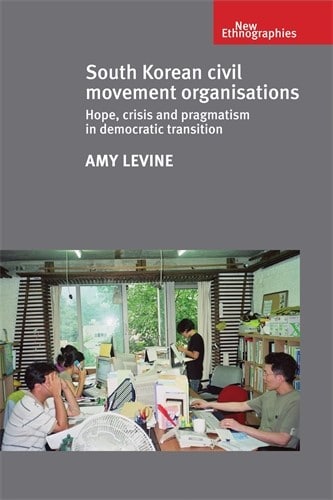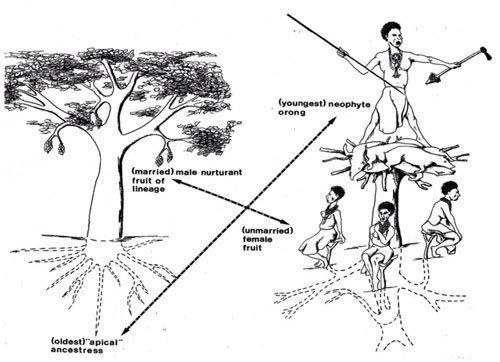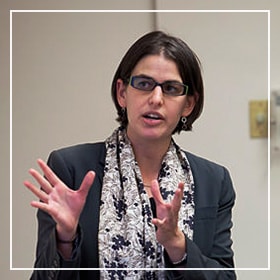The theme of #pragmatisms comes from my fieldwork with a handful of civil movement organisations in Seoul during the mid-2000s. It was a buzzword in South Korea and especially among my informants and colleagues at that time; pragmatism was plural and polysemic. For some it was the same as globalization or money. For others it meant an urgent call to relevance as South Korea both advanced and failed to advance both economically as well as democratically. For others it was a post-ideological, a-moral/ethical, explicitly cultural space of creative social design and innovation. Still for others it was a legal discipline in the face of undisciplined activism.
 Most broadly, the book addresses the increasingly hegemonic role of pragmatisms in knowledge formation and production. Many NGO workers, activists, and academics were searching for hopeful methods to pragmatically respond to crises of human resources, funding, and wider public legitimacy. South Korean Civil Movement Organisations ethnographically examines how these people—often the mid-level department or team leaders—practically and impractically responded to these crises with hope, utopian and dystopian imaginations, dark humour, and resourceful retooling (Riles, Miyazaki and Genda 2014).
Most broadly, the book addresses the increasingly hegemonic role of pragmatisms in knowledge formation and production. Many NGO workers, activists, and academics were searching for hopeful methods to pragmatically respond to crises of human resources, funding, and wider public legitimacy. South Korean Civil Movement Organisations ethnographically examines how these people—often the mid-level department or team leaders—practically and impractically responded to these crises with hope, utopian and dystopian imaginations, dark humour, and resourceful retooling (Riles, Miyazaki and Genda 2014).
One of the key findings of the book is that indigenous and transplanted versions of pragmatism in South Korea have often mediated the extreme movements between hope and crisis that define the nation’s history. Some of the crises include Japanese colonization, American militarization, the Korean War, the sustained division of the country into North and South, and the financial meltdown across Asia in the late 1990s. Some of the hopes include the accelerated economic and liberal-democratic growth achieved through internal social movements, political regimes, and legal reforms. Hyeonjang, which is a Korean term that means site of historical importance and took on strong connotations of praxis through liberation theology and postcolonial movements, indexes the mix of hope and crisis that pragmatism occupies in South Korea. The word appeared repeatedly in conversation and in writing; hyeonjang was also a means among some colleagues to claim methodological sameness between anthropological and activist knowledge practices. There was no shortage of moments of epistemological and ethical empathy among my colleagues. The major difference was that I repeatedly had to look through and past the urgent crisis of the moment to maintain my focus on pragmatisms. In contrast, many of my colleagues felt compelled to find a pragmatic solution to the urgent crisis of the moment. These crises jumped around between negotiations of the US-Korea free trade agreement, the latest flare up with North Korea, Roh Moo Hyun policy decisions around the Iraq War and Saemangeum land reclamation, and ongoing human resource and public legitimacy crises that have often defined civil movement organisations in South Korea.
Korean War battlefields—in particular the pragmatic medical triage practices (Redfield 2013) that matured through that war—are rendered proximate through Korean conscription as well as hot and cold conflicts between North and South Korea, China, Japan, Russia, and the U.S. Two of the basic and widely-agreed-upon tenets of Korean Studies is the agency of history and politicized nature of historiography (Abelmann 1996; Lee 2007). In many ways, these tenets also hold for pragmatisms more generally.
South Korean Civil Movement Organisations maintains a holistic approach to the complexities of pragmatisms. Put another way, the book approaches pragmatism as if a total social fact (Mauss 1990).
The historical, ideological, discursive, bodily, ethical, gendered, generational, and institutional dimensions of pragmatisms are examined. This thematic week opens up and illuminates even more dimensions of pragmatisms.
I am grateful for and humbled by the following contributions:
Tuesday features a rich description of the legacy of pragmatisms in science and technology studies (STS) and the sociology of markets and finance. In “Knowing Economies, Doing Economies: How Sociologists of Markets Have Acknowledged the Legacy of Pragmatism,” Antti Silvast opens up the connections between American pragmatism and performativity theory through examinations of J.L. Austin, Michel Callon, John Dewey, Bruno Latour, Donald MacKenzie, and others. Silvast traces the foundational premises of much STS and sociology of markets theory to pragmatists’ material, textual, linguistic and bodily knowledge practices. The effect of Silvast’s careful work is to re-appreciate the agency of non-human, socio-technical instruments and their pragmatist entanglements.
Wednesday offers an ethnographic foray into sovereign debt litigation and legal knowledge practices more generally. In “Boilerplate Clauses as Pragmatic Knowledge Practices,” Leticia Barrera re-focuses the spotlight on the often overlooked boilerplate clauses—in particular, the pari passu clause that recurred in the 2005 and 2010 Argentine sovereign debt restructuring processes. Barrera focuses on one part of a larger, long-term engagement with legal knowledge as anthropological artefact in Argentina. In so doing she highlights the technical finesse that often passes as unremarkable pragmatic boilerplate work in politicized litigation.
Thursday is an AVMoFA-centered description of on ongoing exchange between Vincent Ialenti and myself about nuclear energy. In “Pragmatism & the Magic Book for Nuclear Power,” Ialenti tells the story of how an adjacent curiosity regarding a pro-nuclear power Korean children’s book he encountered during fieldwork at the 2013 World Nuclear Association symposium opened up varied connections to his research with safety case experts working in the Olkiluoto nuclear waste repository in Finland as well as generational and deep time temporalities, radioactive Greens and eco-modernist approaches. Ialenti offers a glimpse into some of my research after South Korean Civil Movement Organisations. One of the key parallels between my research for the book and my subsequent research on nuclear energy and climate change is the figure-ground relationship between pragmatism and crisis.

Friday is an ethnographic thought experiment and response to my book that brings Frederick Hayek, the Mont Pelerin Society, and neoliberalism—as more specified knowledge practice rather than meaningless blob—into conversation with South Korean pragmatisms at the turn of the millennium. In “Lived Theories: Hayek’s Neoliberalism and Pragmatism,” Ilana Gershon replaces crisis with Hayek’s lived neoliberal theory to re-constitute the ground upon which the figure of pragmatism appears. She illuminates the intellectual history and epistemological legacies that animate neoliberalism’s far-flung reach around the world. Gershon delves into some of Hayek’s particular obsessions and their implications for the market, design, and scale as epistemological and ontological formations. In her first ever blog post, I see the potential for #neoliberalisms whether on Allegra or in another form. There is something to the pragmatist legacy of performativity which Antti Silvast described and Hayek’s lived neoliberal theory which Ilana Gershon explored. Gershon exceeds many of my own articulations—as do Antti Silvast, Leticia Barrera and Vincent Ialenti—to demonstrate the centrality, totality, and plurality of pragmatism (#pragmatisms) across time, place, and field of work.
References Cited
Abelmann, Nancy. 1996. Echoes of the Past, Epics of Dissent: A South Korean Social Movement. Berkeley: University of California Press.
Lee, Namhee. 2007. The Making of Minjung: Democracy and the Politics of Representation in South Korea. Ithaca: Cornell University Press.
Mauss, Marcel. 1990 [1950]. The Gift: The Form and Reason for Exchange in Archaic Societies. W.D. Halls, transl. London: Routledge.
Redfield, Peter. 2013. Life in Crisis: The Ethical Journey of Doctors Without Borders. Berkeley: University of California Press.
Riles, Annelise, Hirokazu Miyazaki, and Yuji Genda. 2014. Retooling: Professionalism for the Future. NTT Press.





